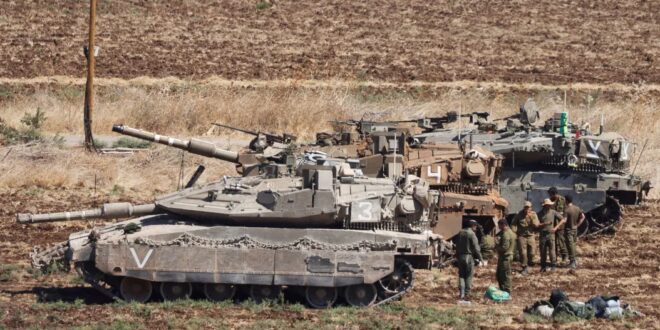The IDF has initiated a “limited” incursion into southern Lebanon targeting Hezbollah assets, according to the Israeli military.
“The IDF began limited, localized, and targeted ground raids based on precise intelligence against Hezbollah terrorist targets and infrastructure in southern Lebanon,” the IDF said in a statement.
“These targets are located in villages close to the border and pose an immediate threat to Israeli communities in northern Israel.”
According to the statement, this latest action is part of the northern offensive codenamed Operation Northern Arrows. Israel hopes to secure the return of approximately 60,000 internally displaced citizens forced to flee their homes in the north because of artillery exchanges over the past year.
The IDF claims to be carrying out “a methodical plan set out by the General Staff and the Northern Command, which soldiers have trained and prepared for in recent months.”
The Lebanese Army — separate from Hezbollah — pulled back from certain checkpoints near the border amid intense shelling, seemingly clearing a path for Israeli ground forces to enter.
Israel has spent the past week degrading Hezbollah’s capabilities and inflicting heavy damage on the terror group’s infrastructure, leadership, and communications network. This culminated in the assassination on Friday of Secretary-General Hassan Nasrallah, who commanded Iran’s fiercest regional proxy force.
Early on Monday, President Biden was asked about the looming operation inside Lebanese territory. “Are you aware of that? Are you comfortable with their plan?” a journalist asked.
“I’m more aware than you might know, and I’m comfortable with them stopping,” the president said. “We should have a cease-fire now.”
Just hours after the president seemingly poured cold water over the operation, Israeli tanks were seen streaming across the northern border.
This marks the first time that Israeli ground troops have entered Lebanese territory since 2006 in a monthlong war that left more than 1,000 Lebanese and 150 Israelis dead. The conflict came to an end with United Nations Security Council Resolution 1701, mandating Israel’s withdrawal from southern Lebanon and a joint U.N.-Lebanese force to replace Hezbollah south of the Litani River.
Israel has claimed that Hezbollah routinely violates the agreement, and it views Hezbollah’s presence so close to its border as a critical national-security threat.
 Eurasia Press & News
Eurasia Press & News




